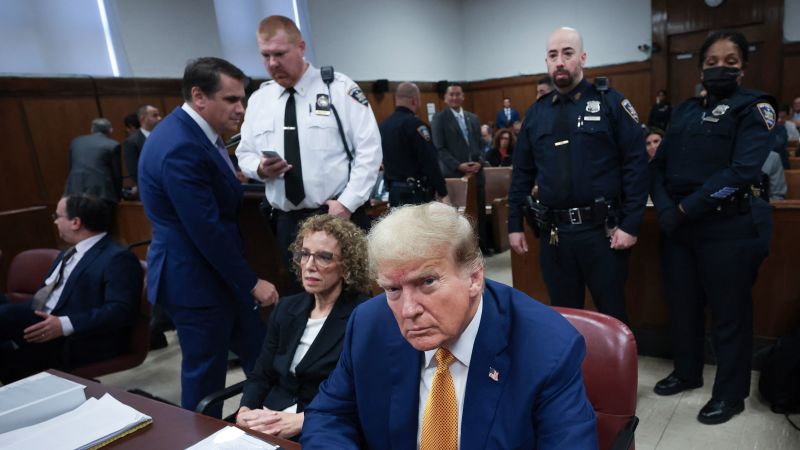Former President Donald Trump is facing four separate criminal prosecutions in four different jurisdictions, and he has publicly declared that they are a coordinated hit job and a political persecution, suggesting a double standard of justice. However, recent developments indicate that three of the four criminal prosecutions may not reach the courtroom before Election Day, undermining Trump’s claims of political persecution. Trump has pleaded not guilty in all of the cases, with one case focusing on his effort to hide an alleged affair rather than his conduct as president or his attempt to overturn the 2020 election.
In one of the cases, Trump faces charges related to mishandling classified data and refusing to turn it over to the National Archives. The trial has been delayed indefinitely, with the judge facing criticism for slow-walking decisions and deferring to Trump’s requests to delay the trial. In another federal case, Trump is accused of conspiring to overturn the 2020 election results, but the trial is also on hold due to the US Supreme Court’s involvement. Conservative justices on the Supreme Court have shown interest in Trump’s arguments, suggesting that their decision may not allow the trial to proceed.
Another case against Trump involves allegations of his efforts to overturn election results in Georgia in 2020. The relationship between Fulton County District Attorney Fani Willis and a prosecutor has raised questions, with Trump’s appeal of the judge’s decision to allow Willis to remain on the case being considered by the Georgia Court of Appeals. Additionally, a case involving Trump’s alleged affair with adult-film star Stormy Daniels is ongoing, with Trump’s lawyers seeking to challenge the credibility of witnesses.
Despite the salacious details of some of the cases, the convictions, if they even occur, may not significantly impact the few swing state voters who will decide the election. Trump’s prosecutions are not part of a grand conspiracy of election interference but are rather a result of the slow-working justice system that can be manipulated by those with the resources to pay for an army of lawyers. Trump’s strategy of delaying trials, getting elected, and then working to make them go away has been effective, as recent delays in his cases have potentially pushed trials past Election Day. Ultimately, these legal battles may not be what sways voters in the upcoming election.













